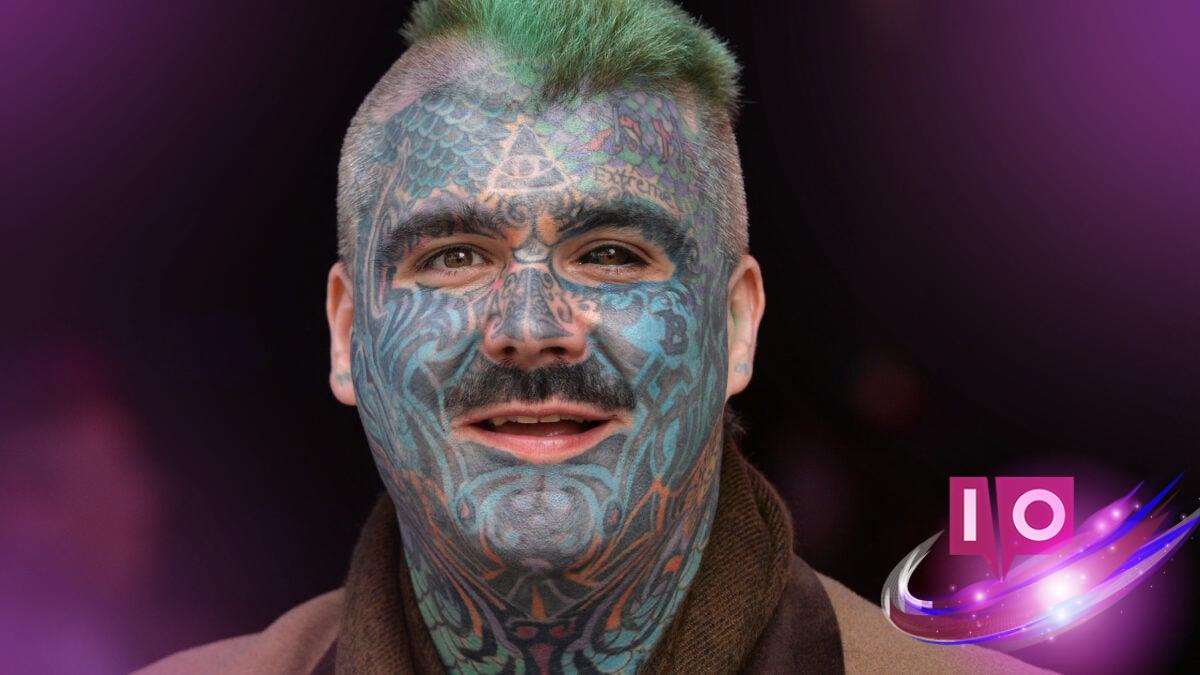The recent implementation of the United Kingdom’s age verification law, aimed at preventing minors from accessing adult content, has unearthed some surprising complications. One of its most unexpected repercussions? It’s affecting Britain’s most tattooed man, who finds himself unable to use platforms that impose selfie-verification protocols due to his heavily tattooed face.
Known as King Of Ink Land King Body Art The Extreme Ink-Ite, this unique individual—who has around 90% of his body covered in tattoos—has encountered significant challenges with facial recognition technology. According to a Metro report, he has had difficulty getting systems to recognize him because of his facial tattoos. “It’s saying ‘remove your mask’,” he explains. “The technology is designed so you can’t just hold up a picture or wear a mask.” His frustration highlights a broader issue with the reliability of age verification systems.
But let’s set the record straight. Contrary to what some might think, the scenario isn’t akin to John Travolta’s dramatic face-swapping exploits in Face/Off. Travolta’s character undertakes a complex and painful surgical procedure to switch appearances for a specific purpose—something King Of Ink can’t replicate, as he embodies his identity permanently.
King Of Ink raises valid concerns about facial recognition technology. Studies have shown that these systems often exhibit biases. For example, a recent analysis indicated that error rates are alarmingly higher for people of color. A landmark MIT study pointed out the stark discrepancy—while the error rate for light-skinned men is around 0.8%, it jumps to a staggering 34.7% for darker-skinned women. Age perception also suffers from biases, which automated systems can magnify, potentially leading to false identifications even for individuals without facial tattoos.
The rollout of the UK’s age verification regulations has not been smooth sailing—not just for King Of Ink but for many others as well. Users have been trying various methods to bypass the age checks, including utilizing VPNs or even using “photo mode” from the video game Death Stranding to provide a seemingly legitimate image for verification. Unfortunately, many still find themselves unable to access vital information. Recent reports indicate that not only adult content is impacted; significant topics ranging from political discussions to news about global crises are also being age-gated, limiting critical discourse.
What challenges does the UK’s age verification law present? The law inadvertently restricts access to important information and cultural content, raising concerns about censorship and freedom of expression. It begs the question: is such extensive regulation really necessary, or could it lead to more problems than it solves?
Are age verification systems reliable? Unfortunately, many systems are prone to errors, especially when it comes to recognizing individuals from diverse backgrounds or those with unconventional appearances.
What impact has the age verification law had on content access in the UK? The law has led to unintended consequences, restricting not just adult content but also access to significant news and discussions on pressing global issues.
Can technology accurately determine age? Studies indicate that facial recognition technology often misjudges age, particularly for individuals with diverse racial backgrounds or distinct appearances, leading to increased chances of inaccuracy.
What’s next for the age verification regulations in the UK? As the law continues to affect users in unforeseen ways, ongoing dialogue and potential reforms may be necessary to ensure that access to information is not unduly hindered.
This situation serves as a reminder of the complexities surrounding technology and societal regulations. As technology evolves, so must our approaches to ensure inclusivity and fairness. To keep up with these developments, feel free to explore more content related to tech and society at Moyens I/O.
